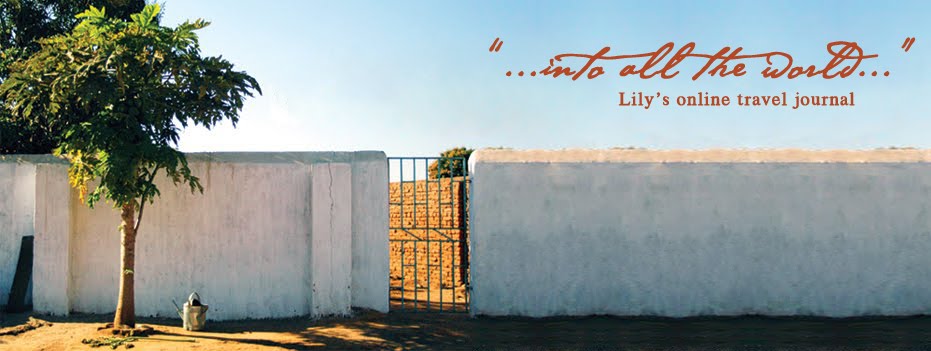They say the kitchen is the heart of the home...but in Uganda, the Mango Tree is the heart of the compound.
After a long drive in the hot, dusty African sun to visit one of the many families on our World Vision DLC trip, we would always look forward to sitting under the cool shade of a mango tree. As we would drive up to the family's compound we could see handmade wooden chairs already waiting for us under the tree. Sometimes the women would be gathered under the mango tree chopping cassava or just socializing, dogs would be napping, and kids would be running around everywhere in the compound, always ready to have their picture taken.
After a long drive in the hot, dusty African sun to visit one of the many families on our World Vision DLC trip, we would always look forward to sitting under the cool shade of a mango tree. As we would drive up to the family's compound we could see handmade wooden chairs already waiting for us under the tree. Sometimes the women would be gathered under the mango tree chopping cassava or just socializing, dogs would be napping, and kids would be running around everywhere in the compound, always ready to have their picture taken.
 |
| Chopping Cassava under a mango tree |
 |
| One of the many beautiful faces we saw...always ready to have their picture taken! |
Almost every family that we visited had the same setup for their compound. There would be a mango tree (or sometimes a neem tree) in the middle, encircled by several huts. One hut would be used for cooking, and then the rest were for sleeping. The walls were made of red
mud bricks while the roofs consisted of branches covered with dried grass. There would be one or several granaries used for storing dried food, and a latrine hidden in a far corner of the compound. Some families might have modified "barns" for keeping their goats (also known as the Ugandan Savings Account.)
 |
| A typical Eastern Ugandan Compound |
 |
| A sleeping hut |
 |
| Photo by Norah |
When I asked Norah which of the photos she took was her favourite, she chose the photo of a hand reaching up to pluck a mango from a tree. Why was that her favourite? "Because the fruit is free, available for everyone to eat."
Mango trees are so plentiful in Uganda. It does not matter whose land the mango tree is on, the fruit is "free for all".
Mango is an excellent source of vitamin A. Ugandans will eat them raw, peels and all.
“The king of the fruits”, mango fruit is one of the most popular, nutritionally rich fruit with unique flavor, fragrance, taste, and health promoting qualities. Mango fruit is rich in pre-biotic dietary fiber, vitamins, minerals, and poly-phenolic flavonoid antioxidant compounds. Mango fruit is an excellent source of Vitamin-A and flavonoids like beta-carotene, alpha-carotene, and beta-cryptoxanthin. 100 g of fresh fruit provides 765 mg or 25% of recommended daily levels of vitamin A. Together; these compounds are known to have antioxidant properties and are essential for vision. Vitamin A is also required for maintaining healthy mucus membranes and skin. Consumption of natural fruits rich in carotenes is known to protect body from lung and oral cavity cancers. Fresh mango is a very rich source of potassium. Potassium is an important component of cell and body fluids that helps controlling heart rate and blood pressure. It is also a very good source of vitamin-B6 (pyridoxine), vitamin-C and vitamin-E. Consumption of foods rich in vitamin C helps body develop resistance against infectious agents and scavenge harmful oxygen free radicals. Vitamin B-6 or pyridoxine is required for GABA hormone production in the brain. It also controls homocystiene levels in the blood, which may otherwise be harmful to blood vessels resulting in CAD and stroke. Copper is a co-factor for many vital enzymes, including cytochrome c-oxidase and superoxide dismutase (other minerals function as co-factors for this enzyme are manganese and zinc). Copper is also required for the production of red blood cells.Mango peels are also rich in phytonutrients, such as the pigment antioxidants like carotenoids and polyphenols.
No wonder mango is call a "Super Fruit"!












 Reading Amanda's blog about
Reading Amanda's blog about 